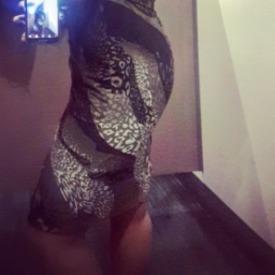Cardio or lifting first?
Replies
-
Thank you everyone for your input and suggestion. My main goal is to burn fat but at the same time I don't want my upper body to be nutty putty either. I will try what most of you have suggested., warm up, lift and then cardio to see how I that works out for me.
 0
0 -
I'll walk then run around the indoor track a few times to warm up. I lift afterwards then do HIIT on the treadmill for 20-30 minutes.0
-
Whatever your main focus is, do that first.0
-
Studies have shown that lifting before Cardio does not affect your Cardio performance but that Cardio before lifting will affect your lifting performance, so lift first, Cardio second.0
-
It depends on where you want to put in the most effort. Do that one first.0
-
I've read this, and heard it repeated a zillion times. Does anyone know if there is any current science to support it?i used to do it before because i was affraid i wouldn't do it after.
if you really wont then i guess you have your answe
lifting depletes muscle glycogen, and supposedly this causes you to burn fat as fuel sooner... so if your looking for a reason to do one before the other that might be it.
Honestly I don't think so, just anecdotal references. I guess the main thing is that if they had figured something factual and concrete by now, everyone would be doing it. So many different ways to do things work for many DIFFERENT people.
your asking if glycogen depletion will cause you to burn more fat during cardio?
not sure if its been proven to do that or not. also not sure if anything other then the utter basics haven been 'proven' beyond the shadow of arguable doubt when it comes to fitness.
Its surprizingly difficult to find real peer reviewed research articles on the web without knowing exactly what your looking for. this at least discusses the issue but i'm not sure if it answers your question (didn't read it because its not much of an issue for me).
http://courses.ucsd.edu/rhampton/bibc102/addn_reading/fat_burners.pdf
In Brief: Endurance athletes and dieters are eager to burn more fat during exercise; athletes
hope to conserve carbohydrate stores, while dieters wish to decrease fat stores. This article
briefly reviews the role of fat as an energy source for physical activity, discusses how exercise
intensity and duration affect fat and carbohydrate metabolism, and assesses the nutrition
strategies athletes are most likely to use in attempts to promote fat burning during exercise:
caffeine ingestion, L-carnitine supplements, medium-chain triglyceride supplements, and highfat
diets. Of this group, caffeine ingestion is the only strategy scientifically proven to enhance
athletic performance.
To be honest, the last thing i read on the subject said that you can burn more calories in fat durring the work out when your muscle glycogen is depeleted, but that you will have less of an 'after burn' effect where your body is burning calories for maintenance work following tough workouts.
I'd say in the end its a wash and your better off doing it when you feel you have the most energy for whatever is more difficult for you.
The problem with all of these discussions -- and even many of the studies -- is that they focus on the trees and miss the entire forest.
For the most part, the fuel substrate you burn during exercise has little to no effect on permanent loss of stored body fat (outside of the effect of the contribution of the exercise to maintaining a calorie deficit).
Even if you do "exhaust you glycogen stores (highly unlikely for the avg person)" and burn a higher percentage of fat, a) it is only a tiny amount of fat to begin with and b) the body changes its fat oxidation rate the rest of the day so that, over 24 hours, there is no difference in total fax oxidation, regardless of what happened during the exercise session.
This changes somewhat when people are at relatively low levels of fat and want to get lower, Then the issue likely becomes more one of fat *mobilization* rather than fat *oxidation*. At that point, emphasizing more fat-burning during a workout or low-carb eating might have a more significant effect. (Which is another reason why average people trying to lose weight usually need not try to emulate the practices of more advanced or elite athletes).0 -
Definitely lifting!!! Otherwise you won't have it in you to lift heavy!
I do hard cardio for 30 minutes before I lift and have yet to be too tired to lift heavy afterwards.
Cardio before works for me because I won't do it after.
Agree--I have done PB lifts and routinely lifted at 4RM-8RM weights, after doing 45-60 min of hard cardio (tempo/threshold intensity). Not something I would want to do all the time, but there was absolutely no issues with form or weight lifted (compared to days where I did only lifting and no cardio). The only negative effect was that I would tend to cut short the lifting workout because I ran out of energy (or interest), but the lifting was not my primary focus, so I didn't care.0 -
I'll do 10 minutes of cardio to warm up, then lift... and if I'm feeling crazy, I'll follow up with another 30 minutes on the arc trainer or running.
^ditto0 -
i always cardio first that takes most of my energy then "take it easy" on a lift,abs ect! :drinker:0
-
5-10 min warm up with cardio. lifting. then 20 or more so minutes after.0
-
On a short day, i do a 5 minute warmup, weight training and 5 minutes cardio after.
On a full workout day, I do my warmup, weight training and then 20 minutes HIIT. If I did the HIIT first there is no way I would have the energy to do the weight lifting, and it feels good to run it out after I've done weights. Then I have my protein shake and voila!! Workout complete!
Above all, enjoy it!0 -
Throwing something slightly different in the ring here; it depends what your goals are. If, for example, your cardio is training for a running race, you'll want maximum energy for that, so do it first then do resistance training; say a regular upper body workout and lower body concentrating more on leg stabilisation and core for injury prevention
Ideally, do them on separate days. You have five or six training days a week, and you will get more out of putting all your effort into each type of workout three times a week rather than going at it half-heartedly more often.0 -
I do cardio on the rower first for about 20-30 mins to warm up, then I do the lifting, then, if I'm still going at the end of that, I'll go on the bike for the end for another 20-30. And if I'm still going, I might do a yoga type class afterwards for an hour or swim.
Mind you, I am lifting at the moment for joint stabilisation, as weightbearing cardio isn't suitable with borked joints. Doing it that way round means I'm minimising chances of injury and it's a sort of interval training. When I am certain my joints are stable, then I can look at additional cardio.
So that might not work for everybody.0
This discussion has been closed.
Categories
- All Categories
- 1.4M Health, Wellness and Goals
- 398.2K Introduce Yourself
- 44.7K Getting Started
- 261K Health and Weight Loss
- 176.4K Food and Nutrition
- 47.7K Recipes
- 233K Fitness and Exercise
- 463 Sleep, Mindfulness and Overall Wellness
- 6.5K Goal: Maintaining Weight
- 8.7K Goal: Gaining Weight and Body Building
- 153.5K Motivation and Support
- 8.4K Challenges
- 1.4K Debate Club
- 96.5K Chit-Chat
- 2.6K Fun and Games
- 4.8K MyFitnessPal Information
- 13 News and Announcements
- 21 MyFitnessPal Academy
- 1.6K Feature Suggestions and Ideas
- 3.2K MyFitnessPal Tech Support Questions








